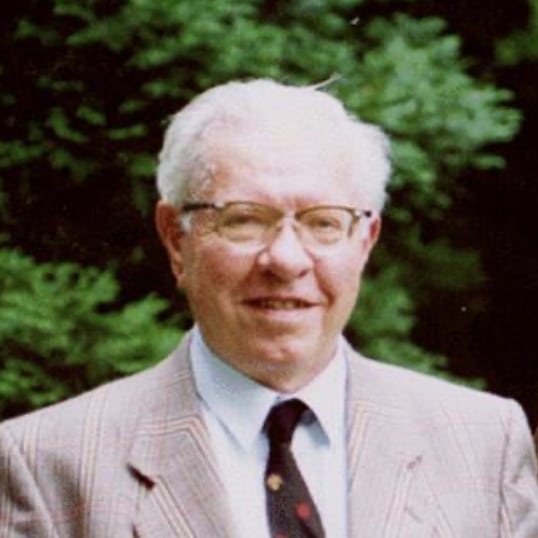
Fred Hoyle was born on June 24, 1915, in Gilstead, West Yorkshire, England. He attended Bingley Grammar School and later won a scholarship to study mathematics at Emmanuel College, Cambridge, where he completed his undergraduate studies in 1936. Fred went on to pursue a Ph.D. in astrophysics. During World War II, he worked on radar development, making significant contributions to the war effort.
After the war, he returned to Cambridge and joined the Institute of Theoretical Astronomy. In 1946, he published a groundbreaking paper on nucleosynthesis, the process by which chemical elements are formed in the cores of stars. This seminal publication provided a theoretical explanation for the abundance of elements in the universe and laid the foundation for our understanding of stellar evolution.
In 1949, Hoyle proposed the Steady-State Theory, a cosmological model that challenged the prevailing Big Bang Theory. According to the Steady-State Theory, the universe is eternal and continuously expanding while maintaining a constant density. Hoyle’s theory gained attention and sparked debates among scientists, but it eventually fell out of favor with the discovery of new evidence supporting the Big Bang Theory.
Despite the controversy surrounding the Steady-State Theory, Hoyle remained an influential figure in astronomy. He popularized the term “Big Bang” in a radio broadcast in 1949, intending it as a criticism of the competing theory. Ironically, the term became widely adopted and is now commonly used to describe the origin of the universe.
In addition to his scientific contributions, Hoyle was also a prolific writer of science fiction novels and popular science books. He had a talent for explaining complex scientific concepts in a clear and engaging manner, making his work accessible to a wide audience. Some of his notable books include “The Black Cloud,” “The Nature of the Universe,” and “Frontiers of Astronomy.”
Fred Hoyle received numerous honors and awards throughout his career, including the Gold Medal of the Royal Astronomical Society, the Bruce Medal, and the Royal Society’s Copley Medal. He was elected a Fellow of the Royal Society in 1957 and was knighted in 1972 for his services to astronomy.
Fred Hoyle passed away on August 20, 2001, in Bournemouth, England. His legacy lives on through his contributions to astrophysics and his popularization of science. Despite the controversy surrounding some of his ideas, Hoyle’s work played a significant role in shaping our understanding of the universe.
